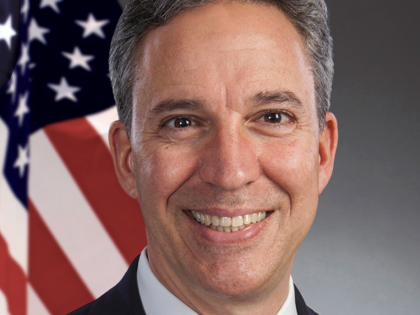
Long Island Newspaper Print Editorials About Efforts to Repeal Payroll Tax
From The Long Island Business News
On The Right Track
The Republican delegation of the New York Senate is behind a push to repeal the onerous MTA payroll tax. The bill, introduced by state Sens. Lee Zeldin, R-Shirley, and Jack Martins, R-Mineola, would phase out the tax over a three-year period.
Starting Jan. 1, 2012, small businesses and nonprofits with fewer than 25 employees would be exempt from the tax, as would all schools. Businesses with more than 25 employees in the seven suburban counties would have the tax rate reduced to 0.23 percent beginning on Jan. 1, 2012, reduced further to 0.12 percent for 2013 and then completely repealed as of Jan. 1, 2014.
The forecasted savings to Long Island taxpayers is estimated at $220 million per year, money that can be put back into the local economy, while the plan’s projected impact on the MTA amounts to less than 2 percent of its operating budget.
According to a release from Sen. Martins’ office, “the Senate and Assembly believe that the leadership of MTA can find savings to offset the payroll tax.”
We are in total agreement. While the tax was imposed in 2009 as a measure to bail out the struggling MTA, the transit authority has not used the money to either increase efficiencies or serve its constituents. One is example is the LIRR’s failure to plan for a major service outage, such as the one that occurred after a small electrical fire in an antiquated control tower in a Jamaica switching station last August stopped service on 10 branches and left thousands of commuters stranded.
More importantly, most employees of Long Island companies don’t use the railroad. So why should local businesses be forced to bear the expense of the tax?
This proposal couldn’t have come at a more opportune time. As our economy begins its slow recovery, we should not be bailing out organizations that continue to prove their inefficiency, but instead should be encouraging growth by reducing the tax burden on companies and individuals.
From Newsday
Tax Repeal Plan Comes Up Short
The unpopular MTA payroll tax is demonstrably a winning political issue. It has toppled incumbent state legislators, and it funds a massive government agency with no shortage of critics. Before it can be repealed, however, any plan to replace its $1.5 billion in revenue, as well as the $10 billion needed to fund the next three years of the Metropolitan Transportation Authority capital program, must be credible and politically feasible.
Freshman Republican Sens. Lee Zeldin of Shirley and Jack Martins of Mineola, whose victories were keys to returning the State Senate majority to the GOP, are aggressively driving the repeal effort. Earlier this week, they unveiled a bill that would exempt businesses with 25 employees or fewer, as well as all public and private schools. Under the existing law, schools pay but get a refund. So this would just stop the upfront payment. In the seven suburban counties, the tax would be reduced in the next two years and eliminated at the start of 2014. New York City businesses would only have their rates reduced.
The senators calculate the repeal would cost the MTA $767 million a year beginning in 2014. But their calculation on how to replace that money doesn't compute.
First is their claim that an improved economy would increase funds coming to the MTA from another revenue stream, the real estate transfer tax. However, in this stalled economy, that revenue isn't likely to return to its 2007 peak anytime soon. Their other suggestions are the usual laundry list of waste, fraud and abuse: cutting overtime, reducing jobs, and selling MTA land and buildings. Trimming the lard at the MTA should always be a priority. Chairman Jay Walder has already put the authority's headquarters up for sale and has been chopping other costs, but one-shot deals will not be enough. Another recommendation is privatizing the city's bus system. That impossible notion is a good measure of how fast this bill will die in Albany.
Also troubling is Zeldin's premise that Suffolk County, especially its eastern reaches, doesn't benefit as much from MTA service as the city does. Beyond the obvious interwoven relationships between New York City and its suburbs, here's one often overlooked example of how Suffolk's economic health depends on the MTA. On a summer Friday, such as today, average ridership from Manhattan to the Hamptons and Montauk swells from the normal 1,500 to 6,500. Aside from the sales tax revenue and jobs generated by the resort area, mass transit keeps many cars off the already busy roads.
Replacing the revenue from the payroll tax can't be divorced from finding the almost $10 billion the MTA needs to complete the next three years of its capital spending. Those projects for Long Island include completing the access for LIRR trains to Grand Central Terminal, the purchase of 160 new rail cars, replacement of a key bridge on the Port Washington branch and overall repair and maintenance of the rail beds.
The payroll tax wasn't the best choice as a way to fund the MTA. Zeldin and Martins campaigned for its repeal and are still in the early stages of coming up with a way to deliver on their promise. Just wishing it will disappear, however, won't make it happen.



